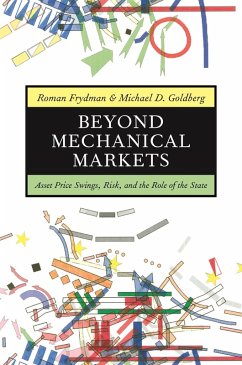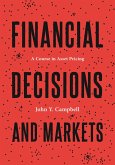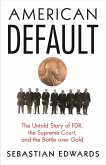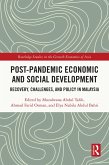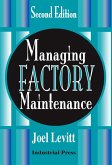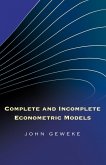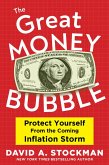A powerful challenge to contemporary economics and a new agenda for global finance
In the wake of the global financial crisis that began in 2007, faith in the rationality of markets has lost ground to a new faith in their irrationality. The problem, Roman Frydman and Michael Goldberg argue, is that both the rational and behavioral theories of the market rest on the same fatal assumption-that markets act mechanically and economic change is fully predictable. In Beyond Mechanical Markets, Frydman and Goldberg show how the failure to abandon this assumption hinders our understanding of how markets work, why price swings help allocate capital to worthy companies, and what role government can and can't play.
The financial crisis, Frydman and Goldberg argue, was made more likely, if not inevitable, by contemporary economic theory, yet its core tenets remain unchanged today. In response, the authors show how imperfect knowledge economics, an approach they pioneered, provides a better understanding of markets and the financial crisis. Frydman and Goldberg deliver a withering critique of the widely accepted view that the boom in equity prices that ended in 2007 was a bubble fueled by herd psychology. They argue, instead, that price swings are driven by individuals' ever-imperfect interpretations of the significance of economic fundamentals for future prices and risk. Because swings are at the heart of a dynamic economy, reforms should aim only to curb their excesses.
Showing why we are being dangerously led astray by thinking of markets as predictably rational or irrational, Beyond Mechanical Markets presents a powerful challenge to conventional economic wisdom that we can't afford to ignore.
In the wake of the global financial crisis that began in 2007, faith in the rationality of markets has lost ground to a new faith in their irrationality. The problem, Roman Frydman and Michael Goldberg argue, is that both the rational and behavioral theories of the market rest on the same fatal assumption-that markets act mechanically and economic change is fully predictable. In Beyond Mechanical Markets, Frydman and Goldberg show how the failure to abandon this assumption hinders our understanding of how markets work, why price swings help allocate capital to worthy companies, and what role government can and can't play.
The financial crisis, Frydman and Goldberg argue, was made more likely, if not inevitable, by contemporary economic theory, yet its core tenets remain unchanged today. In response, the authors show how imperfect knowledge economics, an approach they pioneered, provides a better understanding of markets and the financial crisis. Frydman and Goldberg deliver a withering critique of the widely accepted view that the boom in equity prices that ended in 2007 was a bubble fueled by herd psychology. They argue, instead, that price swings are driven by individuals' ever-imperfect interpretations of the significance of economic fundamentals for future prices and risk. Because swings are at the heart of a dynamic economy, reforms should aim only to curb their excesses.
Showing why we are being dangerously led astray by thinking of markets as predictably rational or irrational, Beyond Mechanical Markets presents a powerful challenge to conventional economic wisdom that we can't afford to ignore.

Zwei Ökonomen auf der Suche nach einer realistischen Theorie
Es ist ein Kreuz mit der modernen Finanzmarkttheorie. Ihre herrschende Version, die Hypothese effizienter Finanzmärkte, unterstellt rationales Verhalten der Marktteilnehmer und gefällt durch ihren Rigorismus. Nicht erst die Finanzkrise hat begründete Zweifel aufkommen lassen, ob die Realität viel mit dieser theoretischen Beschreibung gemein hat. Herausgefordert wird die dominierende Theorie, für deren Entwicklung Nobelpreise vergeben wurden, von der Behavioral Finance, der verhaltenswissenschaftlichen Finanzforschung. Sie sieht den Menschen als weniger rational an als die konkurrierende Schule.
Die Ökonomen Roman Frydman (New York University) und Michael D. Goldberg (University of New Hampshire) finden sowohl die Schule der effizienten Märkte als auch die Behavioral Finance einseitig und Ausdruck eines mechanischen Denkens über Märkte. Für sie sind Märkte dynamische Orte, ihre Ergebnisse sind unkalkulierbar. Marktteilnehmer bewegen sich unter Unsicherheit, wissen nicht alles und bemühen meist ihren Verstand, manchmal aber auch ihr Gefühl, um sich zurechtzufinden. Dass man Marktwirtschaftler sein kann, ohne die Annahme rationaler Erwartungen zu teilen, zeigt das Beispiel des Nobelpreisträgers Ned Phelps, mit dem Frydman zusammengearbeitet hat. Die Spurensuche von Frydman und Goldberg ist interessant. Wohin sie noch führt, ist schwer absehbar.
gb.
Roman Frydman / Michael D. Goldberg: Beyond Mechanical Markets.
Princeton University Press, Princeton 2011. 286 Seiten, 35,- Dollar.
Alle Rechte vorbehalten. © F.A.Z. GmbH, Frankfurt am Main

